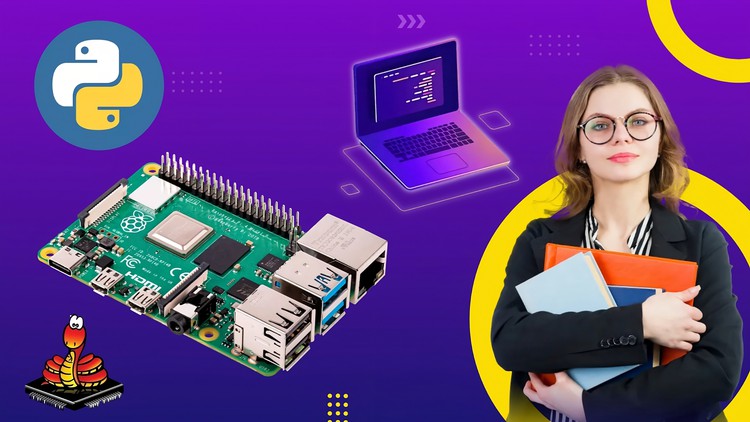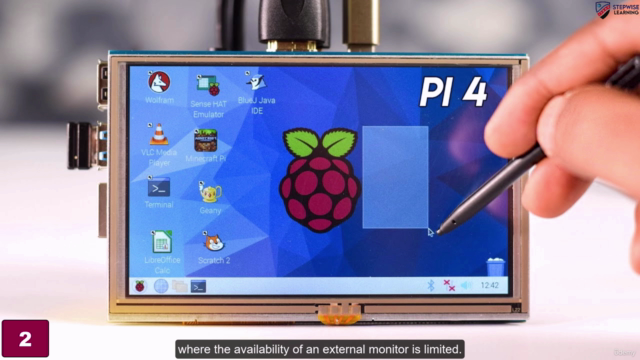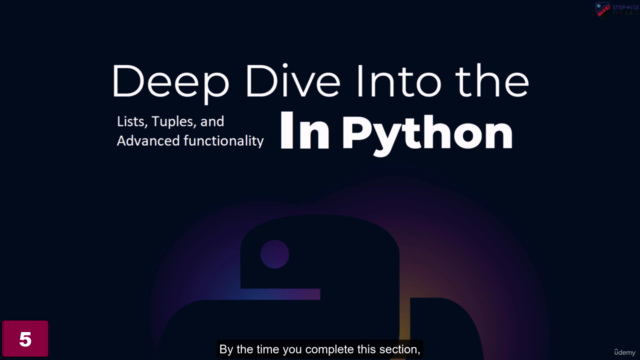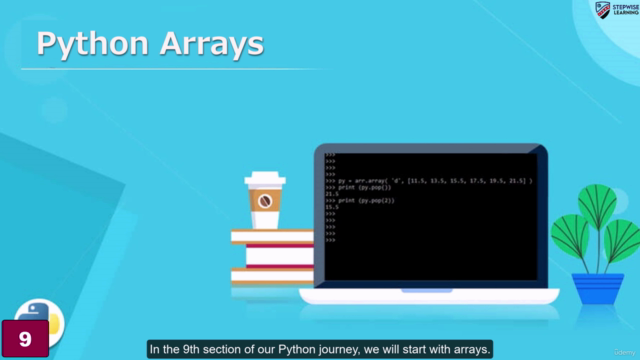Complete Raspberry Pi & Python Bootcamp: Learn and Code 2025

Why take this course?
It seems like you've provided a detailed outline for a Python programming course, including a description of what learners can expect from each section of the course. This outline covers a broad range of topics, from setting up a Raspberry Pi and accessing it remotely to mastering control flow statements and building practical projects.
To transform this outline into an effective online course, you would typically follow these steps:
-
Scriptwriting: Write detailed scripts for each video, ensuring that each concept is explained clearly and concisely. Include examples and use cases where relevant.
-
Recording: Record the videos, making sure the audio and video quality are high to ensure clarity and engagement. Pay attention to lighting, background noise, and camera angles.
-
Editing: Edit the recordings to remove any mistakes or unnecessary parts, add graphics or animations where needed for better visual understanding, and include English subtitles for accessibility.
-
Content Development: Create supplementary materials such as PDFs, cheat sheets, or interactive quizzes that complement the video content.
-
Testing: Before releasing the course, test each section with a small group of users to gather feedback and make necessary adjustments.
-
Launching: Release the course on your chosen platform (like Udemy, Coursera, or your personal website) and provide clear instructions for navigation and progression through the material.
-
Supporting: Offer ongoing support to learners by responding to questions, updating content as needed, and possibly adding live Q&A sessions or additional resources.
-
Iterating: Collect feedback from users continuously and improve the course based on that feedback. This could involve adding more content, clarifying existing explanations, or fixing any bugs in the code examples provided.
-
Marketing: Promote your course through social media, blogs, forums, and other channels to attract new learners and maintain interest over time.
-
Maintaining: Keep the course updated with the latest Python updates and best practices. Ensure that all code examples work with current versions of Python.
Remember, a successful online course not only imparts knowledge but also engages the learner throughout their learning journey. It's important to keep the learners' interests in mind by providing real-world applications for what they are learning and encouraging practical implementation.
Lastly, as you mentioned, offering a satisfaction guarantee is an excellent way to build trust with potential students. It allows them to try the course risk-free and can lead to higher enrollment rates and positive reviews, which are invaluable for the longevity and success of your course.
Course Gallery




Loading charts...